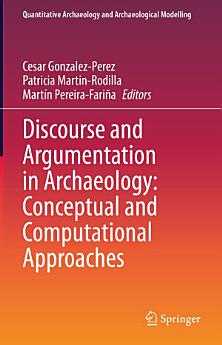Discourse and Argumentation in Archaeology: Conceptual and Computational Approaches
ກ່ຽວກັບປຶ້ມ e-book ນີ້
The book begins with an introduction to discourse and argumentation analysis as a general field and also as an auxiliary technique to archaeology. The work includes conceptual applications, ranging from causality, ontological connections, vagueness, social production of discourse and public debates. The work also devotes a section to computational approaches and describes the specifics of some well-known families of algorithms such as lexical processing, information extraction or sentiment analysis. The conclusion comments on the future and which reflects on the previous chapters and discusses how the presented techniques and approaches should be adapted or improved for easier and more powerful application to archaeology. Contributing authors bring perspectives from archaeology, linguistics, and computer science.
ກ່ຽວກັບຜູ້ຂຽນ
Cesar Gonzalez-Perez is a Staff Scientist at Incipit CSIC, where he leads research in software and cultural heritage. His main interests are knowledge generation and communication. Cesar has edited an ISO standard, evaluates research in 6 countries, has started 3 technology-based companies, is an honorary member of Computer Applications and Quantitative Methods in Archaeology, and has authored over 100 publications.
Patricia Martín-Rodilla is currently a lecturer at the Information Retrieval Lab of the University of A Coruña. She was a postdoctoral researcher at the University of Santiago de Compostela and Incipit-CSIC, with stays in Australia, France, Chile and Portugal. She has worked on multiple archaeology and software engineering projects and has authored over 40 publications. Her main interests are areas of intersection between language, software engineering, and humanities (i.e. computational linguistics, information modelling, social networks, etc.) with a particular focus on Digital Humanities research questions and approaches.
Martín Pereira-Fariña is a lecturer at the Department of Philosophy and Anthropology of the University of Santiago de Compostela. His main interests are argumentation theory, philosophy of language and computational models for knowledge representation and reasoning. Martin has been a postdoc researcher at the Centre of Argument Technology (University of Dundee, Scotland) and at Incipit CSIC, and he has authored over 30 publications.




